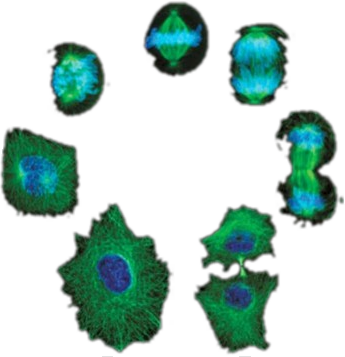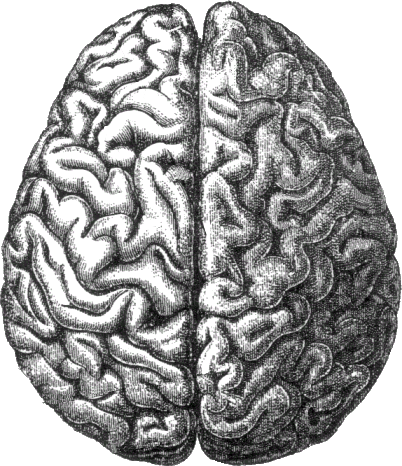-
Introduction Lesson 5.2 - The Cell Cycle
Welcome back!
I n the time it takes you to read this sentence your body will have finished making over a million new cells! You have been replicating (or making copies) of your cells since before you were born. Multicellular organisms like you and I must constantly make new cells in order to grow and to replace cells that die. Some cells, like those in your stomach, are replaced every few days. Red blood cells have an average lifespan of around three months. And certain cells, like the neurons in the cerebral cortex of your brain, are very precious since they are never replaced. The process of making new cells is called the Cell Cycle, and it results in two “daughter cells” which are exact copies of the original cell. This cell cycle is usually controlled by the use of feedback molecules which let the cells know when to stop to start and stop making copies. Occasionally these signals are not received by the cells and they continue to replicate themselves without check. This can result in a tumor or clump of cells. Cancer is when these clumps of tumorous cells interfere with the body’s normal functions.
B y the end of this lesson, you should be able to explain how and why a cell prepares to replicate itself, and describe the six stages of the cell cycle.
C onsider the following questions while you are working through the lesson:Describe why multicellular organisms produce new cells. Why is it necessary for DNA to form chromosomes? What would happen if cells did not copy their organelles and DNA prior to dividing? How are the chromosomes of eukaryotic cells different from the chromosomes of prokaryotic cells? What is the relationship between mitosis and the cell cycle? What might happen if the chromosomes did not separate during Anaphase? When is mitosis considered complete? 
-
Big Idea? Summary Instructions for Lesson 5.2
N ow that you've completed your notes for this lesson, it's time to carefully review them. To receive credit, your summary must reach a minimum word count, and must include all of the required vocabulary terms listed below.Use your notes and the Guiding Questions in the lesson Introduction to help you.
Required Vocabulary Terms:
cell cycle, chromosome, mitosis, nuclei, interphase, prophase, metaphase, telophase, cytokinesis, cancer, divide, identical, replicate
Minimum Length:
50
-
Activities Research & Labs
Instructions: Ask Mr. Guidi for a "CELLS alive! - Mitosis Phase Worksheet" then click on the link below and use the control buttons in the upper left to run the complete animation. Show Mr. Guidi when you've completed the worksheet to earn a token. After the completing Mitosis Phase Worksheet, complete the "Mitosis Cell Parts Worksheet" for another token. CELLS alive! Interactive Mitosis
Instructions: Click on the “Oncology” link below to play the game. As a doctor in a cancer therapy clinic, you'll consult with patients to decide on treatments and learn to work the radiation equipment. Show Mr. Guidi when you have successfully completed this game to earn two tokens. Oncology Game (Study and Treatment of Tumors)
Video Activities
Instructions: Watch the BrainPOP videos below and then take the "Classic Quiz." Pass the quiz with a 80% or better and show Mr. Guidi to earn a token. 
